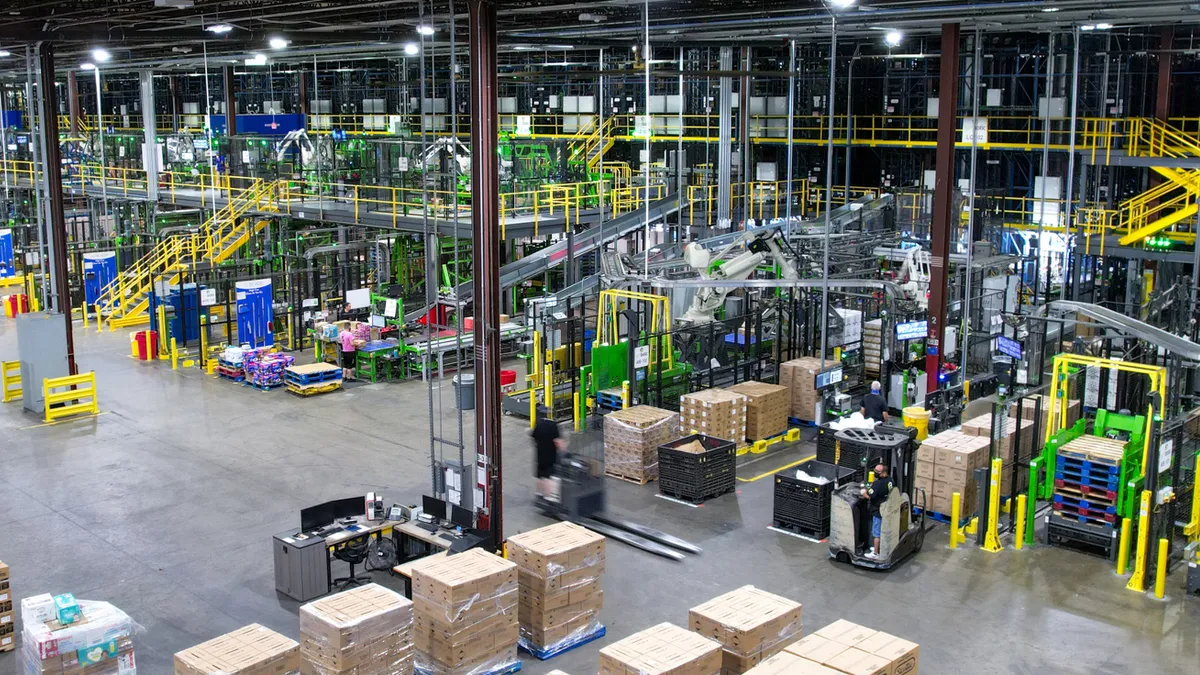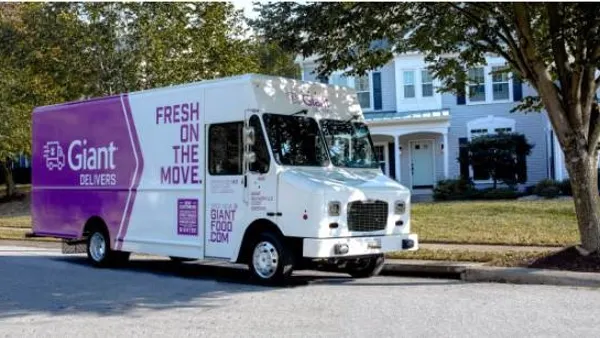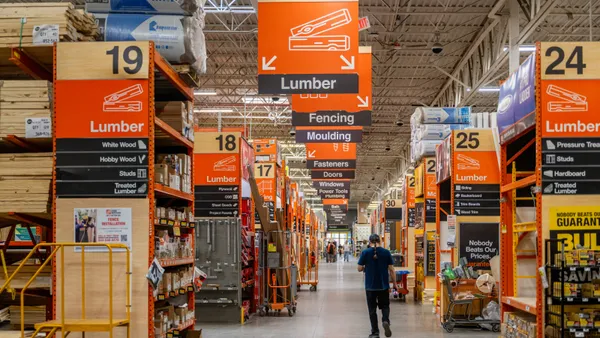Dive Brief:
- Walmart is looking to hire 20,000 permanent full-time and part-time supply chain workers to fulfill orders as smoothly as possible ahead of the hectic holiday shopping season.
- The retailer said Tuesday that it is holding hiring events on Sept. 8 and Sept. 9 for various roles across over 250 Walmart and Sam's Club distribution centers, fulfillment centers and transportation offices. Open roles include order fillers, freight handlers, lift drivers, technicians and management positions.
- Supply chain associates are paid an average of $20.37 per hour, according to the release.
Dive Insight:
The Bentonville, Arkansas, retailer is bolstering its staff's numbers amid fierce hiring sprees among businesses and a strained global supply chain as a result of COVID-19 outbreaks and overwhelming consumer demand.
Large retailers like Walmart and Target have gone as far as chartering their own ships to ensure the transportation of their goods. Target has also partnered with its vendors and transportation partners to keep its shelves well-stocked as it anticipates demand.
Walmart is also ramping up the benefits as the labor shortage threatens to bleed through to the holiday season. In addition to competitive wages, the retailer also touted the opening of six new academies that gives associates specialized supply chain training as well as its debt-free degree program. The retailer is also offering medical coverage and other health-related benefits. Additionally, field-based associates, including supply chain workers, are eligible to receive a bonus check for getting vaccinated by Oct. 4.
Last year, Walmart hired over 20,000 seasonal associates for its e-commerce fulfillment, and a few months later, fired 1,241 employees in Arkansas and New Jersey to focus on its omnichannel push. The retailer has yet to announce seasonal hires for this holiday season.
Walmart, among other retailers, has also been investing in retail technologies to support its supply chain. Walmart invested an undisclosed sum into autonomous vehicle startup Cruise back in April, and it also plans to invest heavily in a more automated supply chain environment over the next year. Meanwhile, Target in April said it has been testing faster methods to deliver packages.
The demand for faster delivery and seamless omnichannel shopping experiences in addition to the labor shortage is driving a rise in retail tech funding, which recently surpassed $31 billion in the second quarter, according to CB Insights.
















